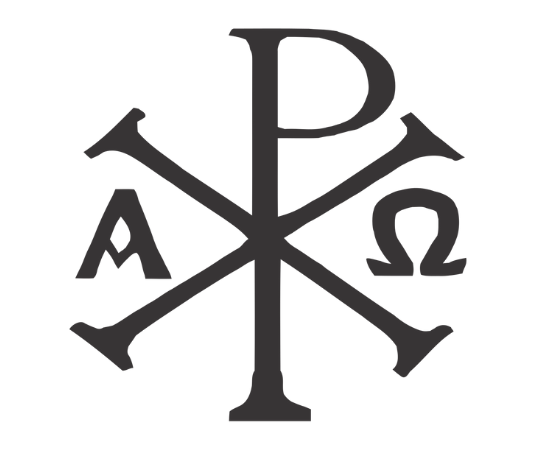I’ve spent the first half of this semester doing two main things: changing diapers and resisting the dominant intellectual currents in my field.
* * *
 My daughter, Ellie, is over a month old now. She is adorable and sweet and always hungry. She is perverse, preferring to wait until she has a clean diaper for crapping in it again. She is also sweet, sleeping best when she is snuggled up against my chest able to hear the beating of my heart.
My daughter, Ellie, is over a month old now. She is adorable and sweet and always hungry. She is perverse, preferring to wait until she has a clean diaper for crapping in it again. She is also sweet, sleeping best when she is snuggled up against my chest able to hear the beating of my heart.
She has not become the center of my world, but she has taken her place at the heart of my identity. Of all of the things I am (and there are a lot), one of the most important is that I am a father.
* * *
We all have obligations. Some of these, maybe even most of these, obligations are voluntary. I have a duty to love Amanda, to seek out what is best for her even at my own expense. And she shares this duty with me, tied to each other as we are by our marriage vows. And I have a chosen obligation to my daughter (in that I chose father her). Ellie is my child and will always be my child. Amanda and I were her point of genesis, and this obligates us to her forever.
But we all have unchosen obligations as well. We have obligations to our parents (who we did not choose). We have obligations to those in authority. We have obligations to other humans by virtue of their humanity.
We have an obligation to pursue the truth.
* * *
For the last month, being a good father has meant not delaying too long in changing diapers. It has meant taking my screaming daughter to the living room and rocking her for hours so that both she and Amanda can get some sleep. Loving my daughter has meant keeping up with the budget, paying the bills, and working hard for my meager stipend.
It means holding her and singing to her and telling her over and over and over again, and reminding myself, that I love her, that I will always take care of her, and that her well being takes priority over anything else in my life, including work, school, friendships, hobbies, entertainment, etc.
* * *
I have written elsewhere about the fuzzy thinking that goes on in English Studies. In Literary Theory (which I actually don’t consider my field since I study Composition and Rhetoric, though I still have to take literature courses), there are various “accepted” theories. Some of the most prominent include following: identity/ideological theory (queer theory, race theory, feminist theory), Marxist/political theory, deconstruction, and psychoanalytic theory.
Ostensibly, the goal of an academic is to work toward the discovery of truth. In the sciences, this seems to be pretty straightforward (I don’t think that the sciences ever really jettisoned modernist epistemology). In the social sciences, where some of the fuzzy thinking that makes its way in to the English department comes from, there is at least a concern for empirical research. There is some idea that academics can work together for the creation of true theories.
But, at its root, much literary theory is a collection of unproved assertions that rely on the intuition of the reader. However effective intuition can be at discerning the truth, I have great trouble trusting intuition unproved by reason. And, in any case, much current literary theory is not only not unified, but actively in contradiction: it is a collection of contradictory materialisms, positivisms, historicisms, and relativisms.
* * *
The most important part of my life are my relationships. Amanda is my wife and my best friend and the mother of my child. She knows me better than anyone else of the planet. There is no one I would rather do life with than her. And then there is Ellie, my daughter, the one who we have been entrusted with to take care of and raise and teach to walk with love in a world of wonder. And my parents, who raised me and taught me to think and pray and love. Then, of course, there are friends and coworkers and acquaintances and strangers.
Life is, at its best, the constant ebb and flow of human contact filtered through love and beauty, ordered toward truth.
* * *
Like Bob Blaskiewicz , I am wary of literary theory since, or so it seems to me, much of it is based on unproven and/or unprovable philosophical assumptions. In fact, it seems to me that literary theory is where bad continental philosophy (not that I like “good” continental philosophy) comes to breed. For example, here are some issues I take with identity theory and Marxist theory (for concerns related to deconstruction please see this post; for concerns related to psychoanalytic theory, please read here).
Identity theory and Marxist theory, as used to critique texts, assumes that texts that manifest various “oppressive” ideologies contribute to “oppression.” And it assumes that critique of these texts actually accomplishes something, like “exposing” or “subverting” ideology. It is sort of a magic belief, I think, that revealing the “truth” automatically leads to change. I think for this methodology to have any kind of validity, it would be necessary for theorists to demonstrate what kind of effect the texts under critique actually have on people or on the way they view the world. To borrow from Becca Kempe’s critique of people who want to censor books in classrooms:
On the one hand you don’t seem to think [people] can encounter an idea without immediately adopting it, as though every time they log onto the internet and some guy is like, “Shut up about your stupid Apple products already. Apple is over. Welcome to 2011, capitalist pigs.” And [they] bend their iPhone 6 in half and throws their Macbook out the window. I mean, I understand, it must be very difficult to parent someone whose worldview is turned on its head every time they encounter a dissenting opinion. That sounds exhausting.
As Kempe points, ideological critique (whether right-wing or left-wing) is simplistic and is simple-minded.
One final issue I take with identity theory is the whole “social construction” business, at least as regards gender. There is a lot of science that affirms more than an anatomical distinction between men and women. While the distinctions should not be used as a basis to oppress women, that doesn’t mean they don’t exist.
* * *
One of the things I plan to teach Ellie is that she is dearly loved by the God who made her (I will defer my explanation for why I am a philosophical theist as well as a Christian to a later blog post). God, the ground of all being, the ordering principle of the universe, has made Ellie in imago dei. She is worth everything.
One of the bases of mine and Amanda’s common life is our participation the sacramental life of the Church, specifically the Richardson East Church of Christ. The primary point of contact with the our faith is not a set of beliefs, but is, instead, a set of practices. While I gladly (this process took me a long time) submit to the ecumenical, historic consensus on matters of theology (and am thus freed from the existential burden of constructing my own ethical and social system from scratch), the main point is that we live life in a community of people who are committed to, by the aid of the Holy Spirit, living out the ethical life of Jesus: love God; love your neighbor.
And, of course, it’s not just our church. It’s also our families. And it’s this way of being in the world, this generous orthodoxy, this open-handed life infused with the truth of tradition and revelation, in which I want Ellie to grow up.
* * *
As I have written before, I am getting my PhD (and studying Composition and Rhetoric) because I want to teach college students to read and write effectively. I am passionate about education as a way to help people make a better life for themselves and their families, and I am earnest about helping my students become good thinkers and citizens, capable of engaging with society for the sake of the common good.
Our world–beset by exploitative global capitalism, religious fanaticism, sexism, racism, rabid individualism, the culture of death, and the loss of the local–is desperately in need of people who are willing to help labor for the common good.
* * *
Here is a truth: my wife, my daughter, my parents, my neighbor–all more important than my academic life. Long after I leave UTA (probably with my PhD, maybe not) I will still be a husband, father, son, and neighbor.
And, God willing, an English professor.
* * *
Post-Script: For New Readers
Given that this post touched on a lot of things, I realize that, if you are at all like me, you may be struggling to put me in religious, cultural, academic, and political categories. And this may be vexing to you. So, as a fellow categorizer, I would like to help:
Politics: I am what is called a distributist. Distributism is a British manifestation of Catholic Social Teaching. It was first promulgated by G.K. Chesterton and Hilaire Belloc. (I have moved from being a Libertarian in high school to a Republican and then Democrat in college to being a Socialist in the first part of my MA program to being a Distributist for the last couple of years; I’ve pretty much been everywhere)
Religion: I am a low-church Protestant with a hankering (at times) for high church liturgy. My specific tradition is the Churches of Christ. (I still need to write a post that updates my spiritual journey)
Culture: I have a pretty conservative personality. And I’m pretty much a curmudgeon. I can’t wait until I’m old.
Academics: I’m working on my PhD in English (Composition and Rhetoric). I’m pretty interested in humanist rhetoric and its relation to Composition Pedagogy.
Of course, I have written extensively about all of these topics on the blog. So feel free to look around.

Leave a comment